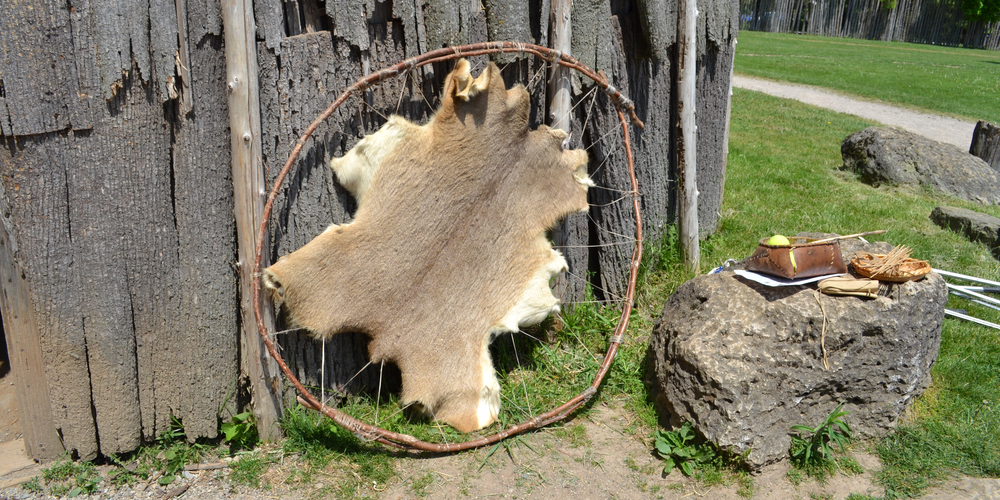What Happens to Tanned Hides That Were Not Washed?
Shafi'i Fiqh
Answered by Shaykh Irshaad Sedick
Question
A hide is tanned but not washed post-tanning. Then it is oiled with pure oil and/or waxed with pure wax and/or dyed with pure dye.
Can it still be washed by me (consumer)? Or does the now impure oil/wax/dye prevent this? What if during washing, dye endlessly “leaks”? Do unreachable parts (folded/stitched over) mean I cannot pray therein?
Answer
In the Name of Allah, the Most Merciful and Compassionate. May Allah alleviate our difficulties and guide us to what pleases Him.
In the Shafi’i School, after the tanning process, a hide must be washed with purifying water to be considered pure. Washing with purifying water at any stage post-tanning will suffice (like a contaminated garment) unless the chemicals applied to it form an impermeable layer that prevents water from reaching the hide, and Allah knows best.
Regarding the hide of an unslaughtered animal, which is filth, the proof that it can be purified is found in the rigorously authenticated hadith, “If the hide is tanned, then it has become pure.” [Muslim]
Requirements of Tanning to Purify Hides
Tanning means removing from a hide all excess blood, fat, hair, and so forth by using an acrid substance, even if impure. Other measures such as using salt, earth, or sunlight, are insufficient. Water need not be used while tanning, though the resultant hide is considered like a garment affected with filth, in that it must be washed with purifying water before it is considered pure. The hides of dogs or swine cannot be purified by tanning. Any hair that remains after tanning has not been made pure, though a little is excusable. [Misri, ‘Umda Al-Salik]
Contaminated or Impure Dye
According to the above ruling, any hair that remains after tanning an unslaughtered animal’s hide remains impure, though excused if a little. Based on that, an unwashed tanned hide that is dyed or chemically treated before washing does not exceed the impurity of the hair, which is excusable. [ibid.] Therefore, the contaminated dye is a fortiori excusable, and Allah knows best.
The dyes and other chemicals used when treating the hide are inevitably impure because of the ethanol they often contain. Despite that, our scholars consider such impurity or contamination excusable, mainly because of the widespread and practically unavoidable use of ethanol, and Allah knows best.
Please see the following:
Is the Shafi’i Madhab Too Strict on Filth?
I pray that this answer benefits and Allah knows best.
[Shaykh] Irshaad Sedick
Checked and Approved by Shaykh Faraz Rabbani
Shaykh Irshaad Sedick was raised in South Africa in a traditional Muslim family. He graduated from Dar al-Ulum al-Arabiyyah al-Islamiyyah in Strand, Western Cape, under the guidance of the late world-renowned scholar, Shaykh Taha Karaan.
Shaykh Irshaad received Ijaza from many luminaries of the Islamic world, including Shaykh Taha Karaan, Mawlana Yusuf Karaan, and Mawlana Abdul Hafeez Makki, among others.
He is the author of the text “The Musnad of Ahmad ibn Hanbal: A Hujjah or not?” He has served as the Director of the Discover Islam Centre and Al Jeem Foundation. For the last five years till present, he has served as the Khatib of Masjid Ar-Rashideen, Mowbray, Cape Town.
Shaykh Irshaad has thirteen years of teaching experience at some of the leading Islamic institutes in Cape Town). He is currently building an Islamic online learning and media platform called ‘Isnad Academy’ and pursuing his Master’s degree in the study of Islam at the University of Johannesburg. He has a keen interest in healthy living and fitness.
